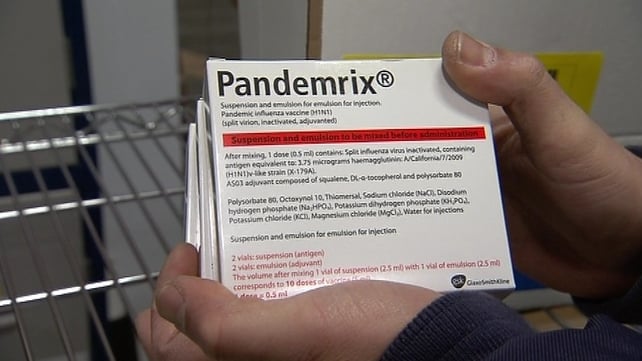
The Irish government, as did all governments offering swine flu vaccines to citizens in 2009-10, provided indemnification to the pharmaceutical manufacturers of the vaccines. Unless guarantees to hold manufacturers harmless for damages were given by governments, the vaccine manufacturers would not provide "emergency" vaccines.
Laws had been instituted in the US and Canada (which I previously discussed in this blog; see the Iowa Attorney General's discussion of the laws here) that provided manufacturers indemnification prior to 2009 for pandemic and bioterrorism vaccines, and for several other emergency therapeutic products. This was in line with WHO policies. These laws guarantee profits to produce vaccines under pressure, with only rudimentary safety testing, shifting risk from manufacturers to consumers. Injured vaccine recipients are prohibited by their governments from suing the vaccine maker. This new legal doctrine has turned the body of tort law on its head. By the way, vaccine recipients were not told of what rights they were giving up when they got vaccinated for Swine flu in 2009-10.
From RTE (also see video at their site):
Pandemrix was made by pharmaceutical firm GlaxoSmithKline and was fast-tracked for use due to the human swine flu crisis.
The State gave the makers of it an indemnity.
Following a vaccination programme in Ireland in 2009 and 2010, around 60 children were diagnosed with the narcolepsy sleeping disorder.
Until now, the State has provided those affected with discretionary medical cards and also covers the cost of scans and private consultant visits.
A report for the Department of Health, published last year, found that the risk of narcolepsy was 13 times higher among those given the vaccine, compared to unvaccinated individuals.
Meanwhile, Director of Quality and Patient Safety at the HSE Dr Philip Crowley said the executive is fully responsible for the care of those who take legal action against the State over sleeping disorder problems they claim are linked to Pandemrix.
Speaking on RTÉ's News at One, Dr Crowley apologised for anxiety caused to those who received the letter and reiterated that the HSE will continue to fund all medical care that they need.
The State Claims Agency has said it did not advise the HSE of any requirement to alter its approach to the awarding of items such as medical cards or the provision of other normal benefits and supports for those affected by narcolepsy.
In a statement, the SCA said that it informed the HSE to cease making ongoing out-of-pocket payments to individuals who were suing the State and that these individuals should include these expenses as part of any special damages claim.










No comments:
Post a Comment